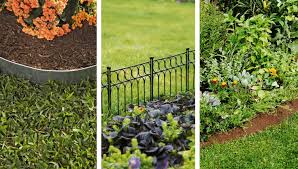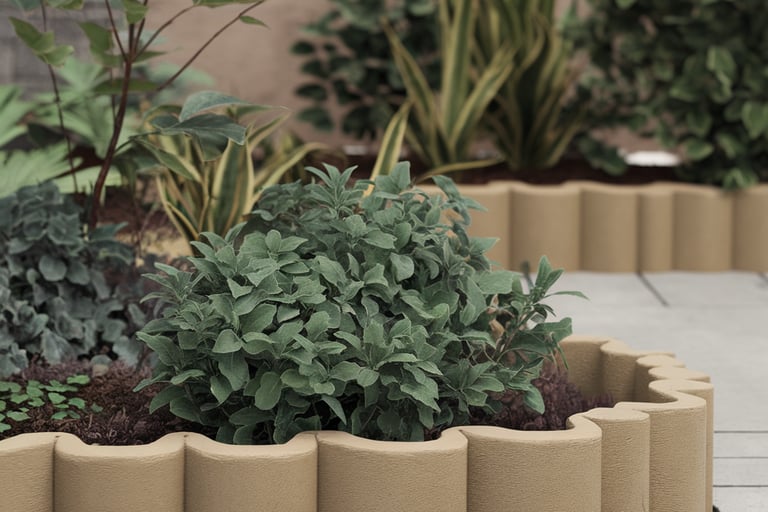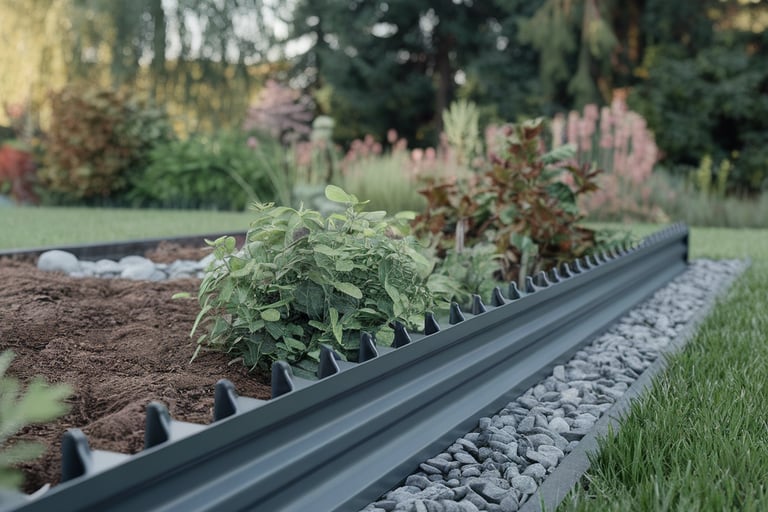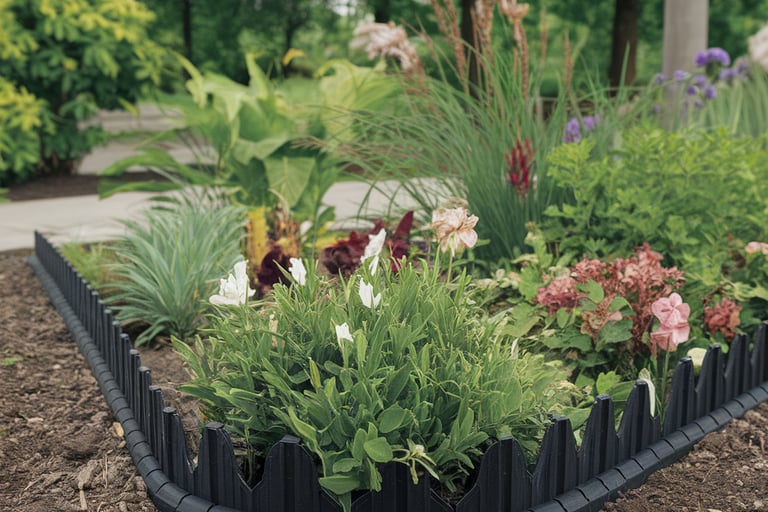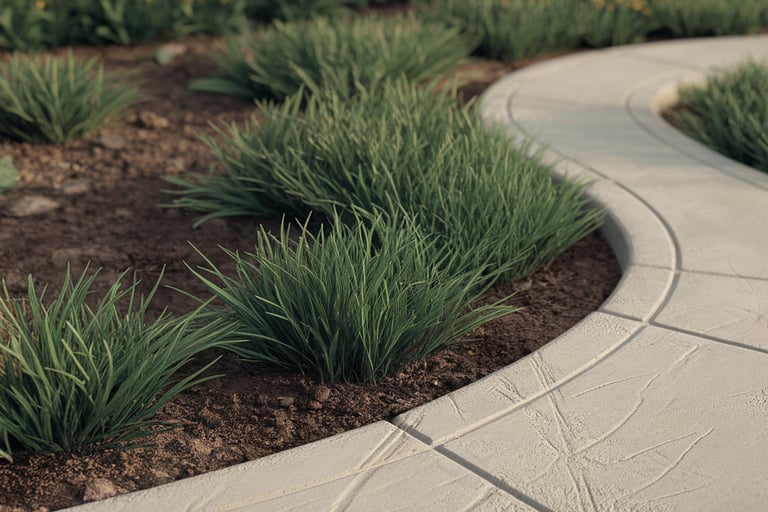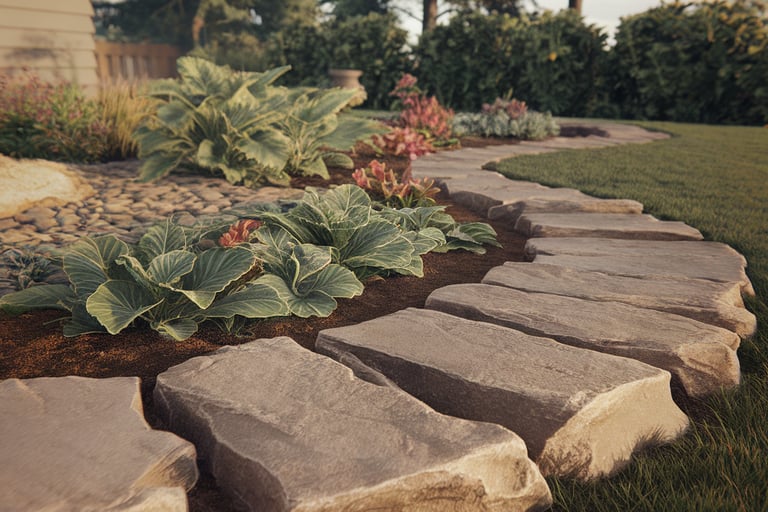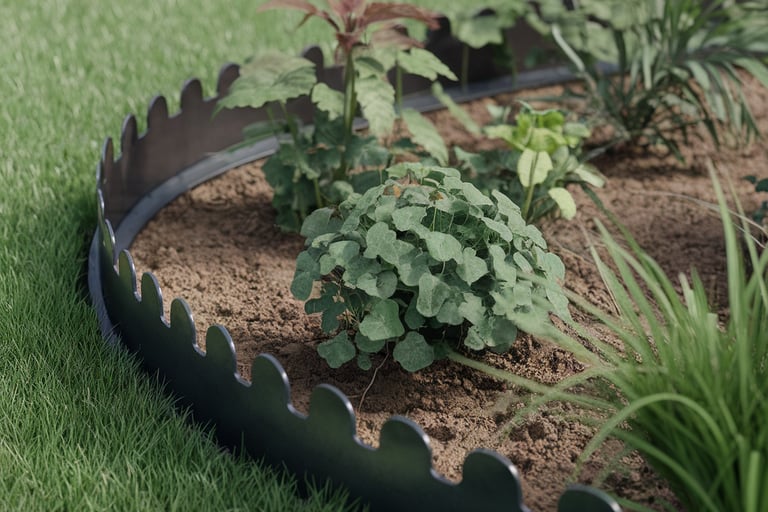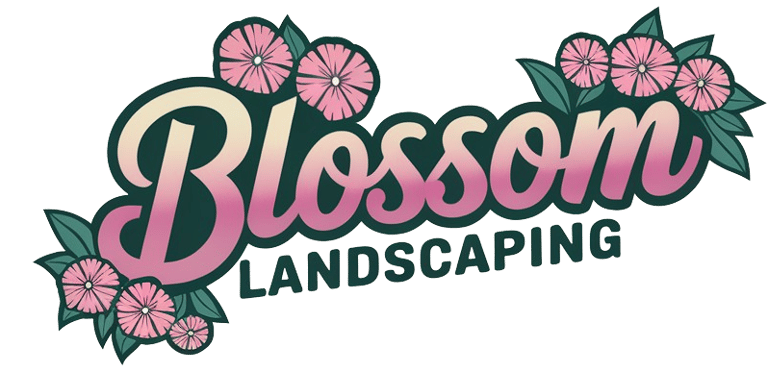
The Best Landscaping Edging to Use in Vancouver
What is the Best Landscaping Edging to Use in Vancouver? All Inclusive Guide To Landscape Edging.
Creating distinct borders between different areas of your yard is essential for maintaining a polished, professional-looking landscape in Vancouver. With our unique climate considerations, from heavy winter rainfall to moderate summers, choosing the right landscape edging is crucial for long-term durability and aesthetic appeal. Let's explore the most effective edging options specifically suited for Vancouver's environmental conditions and soil types.
Understanding Vancouver's Climate Impact on Edging Materials
Before diving into specific edging materials, it's important to understand how Vancouver's climate affects different landscape edging options. Our coastal climate, characterized by approximately 169 days of rainfall per year according to Vancouver Weather Stats (https://vancouver.weatherstats.ca/), creates unique challenges for landscape materials. The constant moisture, combined with our mild temperatures, can impact the longevity and performance of various edging materials differently than in other regions.
Metal Edging: The Professional's Choice
For Vancouver properties, aluminum and steel edging consistently prove to be top performers. These materials stand up exceptionally well to our wet winters and don't deteriorate like some organic materials might. Professional-grade metal edging from suppliers like Southland Supply Depot offers several advantages specifically relevant to Vancouver landscapes:
Corrosion Resistance
In our marine environment, where salt air can be a concern, aluminum edging proves particularly valuable. Unlike standard steel, aluminum won't rust or corrode, even when exposed to Vancouver's consistent rainfall and maritime conditions. This makes it an excellent long-term investment for coastal properties, particularly those closer to English Bay or the Strait of Georgia.
Superior Drainage Management
Metal edging's slim profile allows for excellent drainage, which is crucial in Vancouver's rainy climate. It prevents water pooling and helps manage the significant precipitation we receive during our wet season, typically from October through March. This feature is particularly important for properties in areas like North Vancouver, where rainfall tends to be even higher than the city average.
Natural Stone Edging: The Aesthetic Champion
Natural stone edging has become increasingly popular among Vancouver homeowners, particularly in neighborhoods like Shaughnessy and West Vancouver, where architectural aesthetics are highly valued. Local stone varieties available from Northwest Landscape Supply offer several benefits:
Climate Compatibility
Vancouver's native stone materials are naturally adapted to our climate conditions. They handle freeze-thaw cycles well, although these are relatively mild in our climate compared to other Canadian cities. The weight and stability of stone edging also make it ideal for sloped properties, which are common in areas like the North Shore.
Eco-Friendly Benefits
Natural stone edging aligns well with Vancouver's commitment to environmental sustainability. It requires no manufacturing process and can often be sourced locally, reducing transportation emissions. This aspect particularly appeals to environmentally conscious homeowners in areas like Kitsilano and Mount Pleasant.
Concrete Edging: The Versatile Solution
Poured concrete edging has gained significant traction in Vancouver's landscaping scene, offering a perfect balance between durability and design flexibility. When properly installed by certified contractors, concrete edging can last decades despite our wet climate. The material's adaptability allows for:
Custom Design Options
Concrete can be molded to match any landscape design, making it particularly suitable for the diverse architectural styles found throughout Vancouver's neighborhoods. From the heritage homes in Strathcona to modern developments in Yaletown, concrete edging can be customized to complement any property style.
Plastic and Composite Edging: The Practical Alternative
While some homeowners might overlook plastic and composite options, these materials have evolved significantly and offer unique advantages for Vancouver's climate. Modern composite edging from local suppliers like RONA (https://www.rona.ca/) provides excellent durability while being significantly easier to install than traditional materials.
Weather Resistance
Unlike older plastic edging products, modern composites are specifically engineered to withstand UV exposure and extreme temperature fluctuations. This is particularly important for Vancouver's south-facing gardens, where summer sun exposure can be intense despite our generally mild climate. These materials won't crack during our occasional cold snaps or degrade from the constant wet-dry cycles we experience throughout the year.
Installation Considerations for Vancouver Soil Types
Vancouver's soil composition varies significantly across different neighborhoods, from the sandy loam of Point Grey to the clay-heavy soil found in parts of East Vancouver. This diversity requires careful consideration when installing any type of landscape edging.
Soil Drainage Patterns
Our city's high water table and frequent rainfall mean proper installation is crucial for preventing soil erosion and maintaining edge stability. Professional installers from Vancouver's Garden Works (https://www.gardenworks.ca/) recommend installing drainage channels alongside rigid edging materials, particularly in areas with clay-heavy soil that retains moisture.
Depth Requirements
Vancouver's frost line is relatively shallow compared to other Canadian cities, typically reaching only about 18 inches deep. However, proper installation depth is still crucial for preventing frost heave during our occasional cold spells. Most edging should be installed at least 6 inches deep, with an additional depth allowance in areas prone to soil movement.
Seasonal Maintenance Considerations
Vancouver's distinct seasonal patterns require specific maintenance approaches for different edging materials:
Winter Preparation
During our wet season (October to March), regular inspection of edging is essential to ensure proper drainage and prevent water accumulation. This is particularly important for properties near our numerous ravines and waterways, where soil saturation can be higher.
Spring Adjustments
After winter, our freeze-thaw cycles, though mild, can cause slight shifting in some edging materials. Early spring is the ideal time to check and adjust edging alignment, particularly important in areas with significant grade changes like the British Properties or North Vancouver.
Summer Care
During our drier summer months (July to September), different challenges emerge. Soil contraction can create gaps between the edging and soil, requiring occasional reinforcement and soil compaction to maintain clean lines and prevent weed infiltration.
Cost Considerations and Long-term Value
When evaluating edging options for Vancouver properties, it's essential to consider both initial installation costs and long-term maintenance requirements:
Material Investment
While metal and stone edging typically represent higher upfront costs, their longevity in Vancouver's climate often justifies the investment. Current market prices in Vancouver range from:
Basic plastic edging: $5-10 per linear foot installed
Professional-grade aluminum: $15-25 per linear foot installed
Natural stone: $20-40 per linear foot installed
Poured concrete: $25-35 per linear foot installed
Professional Installation Tips and Best Practices
Working with Vancouver's unique topography and soil conditions requires specific installation techniques that differ from standard practices used in other regions. Here's what local professionals consider essential for successful edging installation:
Slope Considerations
Many Vancouver properties, especially in areas like British Properties and Deep Cove, feature significant grade changes. Professional installers recommend stepping or terracing edging on slopes greater than 15 degrees to prevent soil erosion during our heavy rainfall periods. This technique is particularly crucial for properties backing onto ravines or forest areas.
Soil Preparation
Vancouver's acidic soil, typically ranging from pH 5.0 to 6.5, requires special consideration during installation. Adding lime-based materials near concrete edging can help neutralize soil acidity and extend the edging's lifespan. This is particularly important in areas with heavy organic matter content, like properties near Pacific Spirit Park or Stanley Park.
Common Installation Mistakes to Avoid
Inadequate Depth Installation
One of the most frequent errors in Vancouver landscapes is installing edging too shallow. While our frost line isn't as deep as other Canadian cities, the consistent rainfall requires proper anchoring to prevent shifting and heaving during wet-dry cycles.
Improper Material Selection
Choosing materials unsuitable for Vancouver's maritime climate can lead to premature deterioration. For example, untreated steel edging often fails prematurely in areas close to the ocean, like Kitsilano or West Vancouver, due to salt exposure.
Integration with Existing Landscape Features
Working Around Tree Roots
Vancouver's abundant tree coverage, protected by strict municipal bylaws, requires careful consideration when installing landscape edging. Professional installers recommend flexible edging materials around established trees to accommodate root growth and prevent damage to both the tree and the edging material.
Drainage System Coordination
With Vancouver's significant annual rainfall, proper integration with existing drainage systems is crucial. Edging should never impede water flow or create damming effects, particularly important in areas like False Creek or Coal Harbour where water table levels are naturally high.
Environmental Considerations
Sustainable Materials
In alignment with Vancouver's Greenest City Action Plan, many homeowners are opting for environmentally conscious edging solutions. Recycled metal edging and locally sourced stone have become increasingly popular options that support our city's sustainability goals.
Wildlife Considerations
Vancouver's urban wildlife, particularly in areas bordering green spaces, should be considered when selecting edging materials. Avoid sharp edges or materials that could harm local fauna, especially in neighborhoods adjacent to parks and forested areas.
Frequently Asked Questions
Q: How long does landscape edging typically last in Vancouver's climate?
A: With proper installation and maintenance, metal edging can last 15-20 years, natural stone 20+ years, and concrete edging 10-15 years. However, these lifespans can vary based on specific location and exposure to elements.
Q: What's the best edging material for properties near the ocean?
A: Aluminum or composite materials are recommended for oceanfront properties due to their superior resistance to salt spray and marine conditions. Natural stone is also an excellent choice for coastal areas.
Q: How does Vancouver's rainy season affect edging maintenance?
A: Regular inspection during the rainy season (October-March) is essential. Check for soil erosion, ensure proper drainage, and verify edge stability, particularly after heavy rainfall events.
Q: Are there specific municipal regulations regarding landscape edging in Vancouver?
A: While Vancouver doesn't have specific regulations for residential landscape edging, property line installations may require permits. Always check with the City of Vancouver's planning department for current requirements.
Q: What's the best time of year to install landscape edging in Vancouver?
A: Late spring to early summer (May-June) is ideal for installation, around when you would do a sod install, when soil moisture levels are moderate and before the dry season begins. This timing allows for proper soil compaction and material settling before winter rains.
Ready to enhance your Vancouver property with professional landscape edging? Consider scheduling a consultation with a local landscape professional who understands our unique climate and soil conditions. They can help you select the best materials and installation methods for your specific property needs while ensuring compliance with local regulations and environmental considerations.
Remember, proper landscape edging is an investment in your property's value and aesthetic appeal. Taking the time to choose the right materials and installation methods for Vancouver's unique environment will pay dividends in long-term durability and reduced maintenance requirements. To learn more click here.
